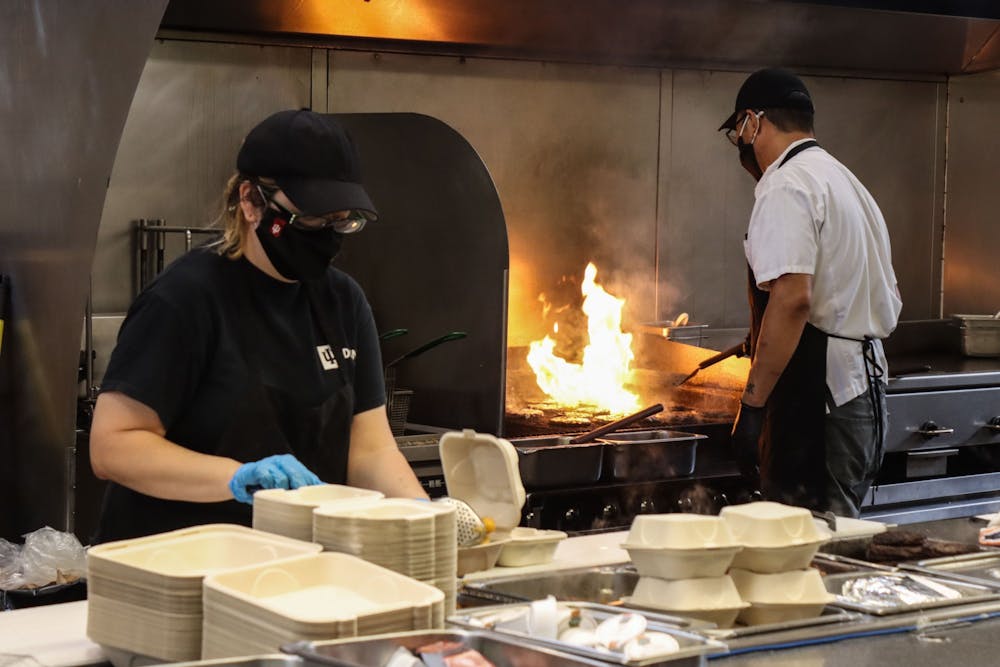Thanksgiving is almost here, and we know what that means: it’s nearly time to gather around the table for delightful political conversations with our conservative relatives!
I’d like to do my part this year by providing some good conversation material. So, if you’re looking for an argument, bring up the politics of food.
We may not often think about the political implications of food. Maybe we notice when the price of food starts to rise – food becomes political then, as if our senators purposefully inflated the price of milk just to spite us. But the politics of food encompasses much more than just prices.
Imagine sitting down with your family for Thanksgiving dinner. Your mother, a saint, has worked all day preparing the turkey and the mashed potatoes and the pumpkin pie.
But how did the food get to your plate? The food came from the supermarket, you reply. But how did the food get to the supermarket?
There’s a sort of mystical quality about global capitalism in that everything is a commodity to be bought and sold, even necessities like food. When we go to the supermarket to buy food, we simply grab it and swipe the credit card.
But many questions are raised by this interaction between money and product. Who raised this turkey? Who grew these potatoes? Are they being well-paid? Do they have good working conditions?
Capitalism makes these questions difficult to answer. The system’s vast, complex supply chains make it pretty much impossible to know for certain who produced the food on your plate.
[Related: OPINION: There will never be equality under capitalism]
This is troubling. If we don’t know where our food comes from, we can’t easily know about the conditions of the producers. Take, for example, HelloFresh. This week, the meal kit company was accused of obtaining coconut milk using monkey labor. Monkeys would allegedly be chained, whipped and beaten while spending long hours picking coconuts.
In twisted capitalist logic, this animal cruelty makes sense. You don’t have to pay a monkey.
Then again, sometimes you don’t have to pay humans either. In June, a lawsuit alleging Nestle, Hershey and Cargill engage in child slavery in Africa was dismissed by a federal court, not because the accused have been exonerated, but because of legal technicalities. The plaintiffs, who claim they were sold into slavery as children, will appeal.
Now, you’re probably quite depressed about how the food may have gotten to your plate. You decide to swallow your feelings with some delicious pumpkin roll. It’s so, so good. But it’s also kind of bad, no?
The foods many of us eat are very unhealthy. We might rationalize our unhealthy habits by arguing that unhealthy food is cheaper than healthy food. And you would be right about that. But why is unhealthy food so cheap?
The government subsidizes production of the corn, wheat and soy put into junk food. The government doesn’t subsidize fruits or vegetables, which are already more expensive to produce than junk food because they require human labor, whereas junk food can often be made by machines.
One of the leading causes of death in America is heart disease, which has much to do with the garbage we put in our mouths. Capitalists are incentivized to produce this garbage, and consumers are incentivized to eat it.
[Related: Rises in “all-you-care-to-eat" food waste puts strains on IU Dining workers]
Well, you eat the sugary food anyway, and you’re full. Oh no! We might have to throw some food out.
Don’t you feel bad doing that? I always do. I was horrified when I read how much food is wasted at the dining halls at IU. But this is a systemic problem. Between 30 to 40% of the food supply is wasted in America, according to the U.S. Department of Agriculture.
Meanwhile, 34 million people in the U.S. are food insecure. America has food, and it has hungry people. It chooses not to feed them. As Marx said, “There must be something rotten in the very core of a social system which increases its wealth without diminishing its misery.”
I hope I haven’t spoiled your holiday spirit. Food is a political problem demanding to be solved. Just something to think about. Food for thought, if you will.
Jared Quigg (he/him) is a junior studying journalism and political science.




